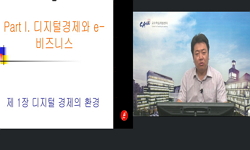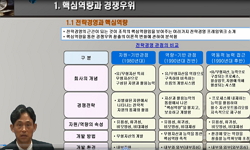The object of this study is to investigate how small and medium-sized hospitals in Korea developed and launched the performance evaluation of Knowledge Management with emphasis on Balanced Score Card(BSC). Since early 1990s, leading global companies h...
http://chineseinput.net/에서 pinyin(병음)방식으로 중국어를 변환할 수 있습니다.
변환된 중국어를 복사하여 사용하시면 됩니다.
- 中文 을 입력하시려면 zhongwen을 입력하시고 space를누르시면됩니다.
- 北京 을 입력하시려면 beijing을 입력하시고 space를 누르시면 됩니다.
중소병원의 균형성과표(BSC) 도입 타당성에관한 연구 = A Study on the Performance Evaluation of Knowledge Management in Medium Small Sized Hospitals
한글로보기https://www.riss.kr/link?id=T11004135
- 저자
-
발행사항
서울 : 동국대학교 경영대학원, 2007
-
학위논문사항
학위논문(석사) -- 동국대학교 경영대학원 , 회계학과 , 2007. 8
-
발행연도
2007
-
작성언어
한국어
- 주제어
-
DDC
362.11
-
발행국(도시)
서울
-
형태사항
ⅱ, 67 p. ; 26 cm
-
일반주기명
지도교수: 한진수
- DOI식별코드
- 소장기관
-
0
상세조회 -
0
다운로드
부가정보
다국어 초록 (Multilingual Abstract)
Since early 1990s, leading global companies have recognized knowledge as the primary weapon in the age of new competition. Besides, they have promoted and emphasized knowledge sharing as well as Knowledge Management. In the age of knowledge based economy, knowledge is the most powerful tool to create the value. Therefore, companies need to develop and administer their own Knowledge Management system which promotes knowledge sharing among the employees so that they can deal with uncertainties and quickly adjust to the rapidly changing environment.
Companies should recognize and implement a knowledge system as a valuable management system which allows them to keep their competitive advantages and to grow continuously. Moreover, the eventual performance of companies depends on the effectiveness of Knowledge Management. Therefore, the company which adopted the Knowledge Management should have its own evaluation system to make sure whether Knowledge Management is implemented as expected. There are many methods of evaluation, and among them, the most popular method is Balanced Scorecard(BSC).
BSC was developed by Kaplan RS. and Norton DP. in 1993. The purpose of the BSC is to solve the limitation of current performance measure systems which just have refuted financial performances of the past. BSC has 4 perspectives; financial, customer, internal business process, and innovation and learning perspective. The performance measure is used to establish strategies through the mission and vision of the organizations.
In Korea, many small and medium-sized hospitals had crises in hospital management because the environment of management was dramatically changing. According to successful case studies, there are common factors. At first, needs for a new strategic tool was raised by internal and external factors. Secondly, the strong leadership of CEO was an important factor. Thirdly, the management method was flexible for each hospital. Fourthly, mission, vision and strategy were defined clearly.
The BSC development requires a lot of resources such as time, human resources, capitals and etc. Even though it might not be affordable for the small and medium-sized hospitals, BSC is a valuable system to try for hospital managing efficiency, employee motivation, and growth and success.
BSC will influence to whole organization because BSC is not only the simple performance measurement system but also the integrated strategic management system. Therefore, the CEO should have the strong leadership to introduce BSC and keep up consistently. Also, the manager of each business unit and all employees should be involved actively in the process.
The object of this study is to investigate how small and medium-sized hospitals in Korea developed and launched the performance evaluation of Knowledge Management with emphasis on Balanced Score Card(BSC).
Since early 1990s, leading global companies have recognized knowledge as the primary weapon in the age of new competition. Besides, they have promoted and emphasized knowledge sharing as well as Knowledge Management. In the age of knowledge based economy, knowledge is the most powerful tool to create the value. Therefore, companies need to develop and administer their own Knowledge Management system which promotes knowledge sharing among the employees so that they can deal with uncertainties and quickly adjust to the rapidly changing environment.
Companies should recognize and implement a knowledge system as a valuable management system which allows them to keep their competitive advantages and to grow continuously. Moreover, the eventual performance of companies depends on the effectiveness of Knowledge Management. Therefore, the company which adopted the Knowledge Management should have its own evaluation system to make sure whether Knowledge Management is implemented as expected. There are many methods of evaluation, and among them, the most popular method is Balanced Scorecard(BSC).
BSC was developed by Kaplan RS. and Norton DP. in 1993. The purpose of the BSC is to solve the limitation of current performance measure systems which just have refuted financial performances of the past. BSC has 4 perspectives; financial, customer, internal business process, and innovation and learning perspective. The performance measure is used to establish strategies through the mission and vision of the organizations.
In Korea, many small and medium-sized hospitals had crises in hospital management because the environment of management was dramatically changing. According to successful case studies, there are common factors. At first, needs for a new strategic tool was raised by internal and external factors. Secondly, the strong leadership of CEO was an important factor. Thirdly, the management method was flexible for each hospital. Fourthly, mission, vision and strategy were defined clearly.
The BSC development requires a lot of resources such as time, human resources, capitals and etc. Even though it might not be affordable for the small and medium-sized hospitals, BSC is a valuable system to try for hospital managing efficiency, employee motivation, and growth and success.
BSC will influence to whole organization because BSC is not only the simple performance measurement system but also the integrated strategic management system. Therefore, the CEO should have the strong leadership to introduce BSC and keep up consistently. Also, the manager of each business unit and all employees should be involved actively in the process.
목차 (Table of Contents)
- 제 1 장 서론 = 1
- 제 1 절 연구의 목적 = 1
- 제 2 절 연구의 방법 = 3
- 제 2 장 지식경영의 개관 및 성과 평가 = 5
- 제 1 절 지식경영의 개관 = 5
- 제 1 장 서론 = 1
- 제 1 절 연구의 목적 = 1
- 제 2 절 연구의 방법 = 3
- 제 2 장 지식경영의 개관 및 성과 평가 = 5
- 제 1 절 지식경영의 개관 = 5
- 1. 지식경영의 정의와 이점 = 6
- 2. 지식경영의 성공과 실패요인 = 12
- 제 2 절 지식경영 성과평가의 대두 배경 = 15
- 제 3 절 지식경영의 성과평가 방법 = 17
- 제 3 장 BSC를 이용한 지식경영의 성과평가 = 20
- 제 1 절 BSC의 도입배경 = 20
- 제 2 절 BSC의 네 가지 관점 = 22
- 1. 재무적 관점(Financial Perspective) = 23
- 2. 고객관점(Customer Perspective) = 25
- 3. 내부 프로세스 관점(Internal Business Process Perspective) = 26
- 4. 학습과 성장관점(Learning and Growth Perspective) = 28
- 제 3 절 지식경영 시스템으로서의 BSC = 30
- 제 4 장 BSC를 이용한 지식경영의 활용사례 = 33
- 제 1 절 국외 병원의 지식경영 활용 사례 = 33
- 1. Duke Childrens hospital = 33
- 2. Mayo Clinic = 35
- 3. Hudson River Psychiatric Center(HRPC) = 37
- 4. Henry Ford Health System(HFHS) = 40
- 제 2 절 국내 병원의 지식경영 활용 사례 = 42
- 1. 전북대학병원 = 42
- 2. 경북 A병원의 지식경영 = 45
- 제 3 절 중소병원에의 시사점 = 48
- 1. BSC 도입 사례의 시사점 = 48
- 2. 중소병원에서 BSC도입의 타당성 = 51
- 3. 중소병원에서 BSC 도입의 제한점 = 54
- 제 5 장 결론 = 56
- 참고문헌 = 58
- ABSTRACT = 65











